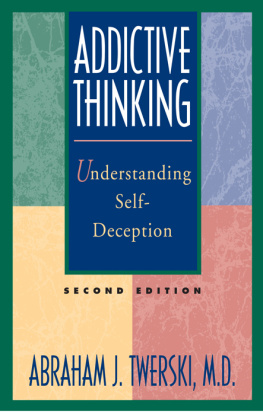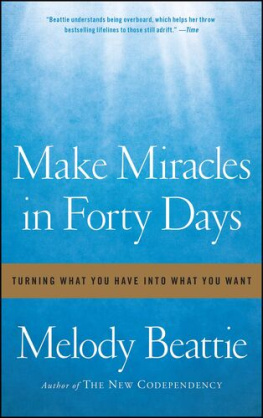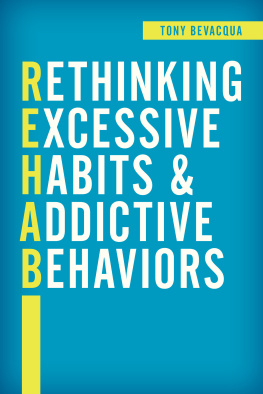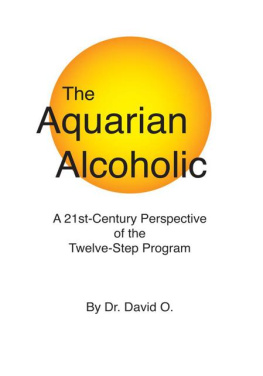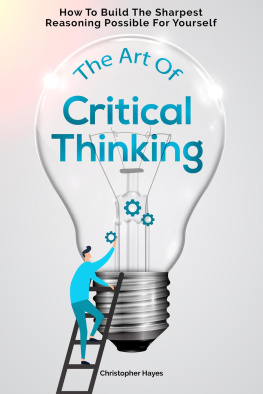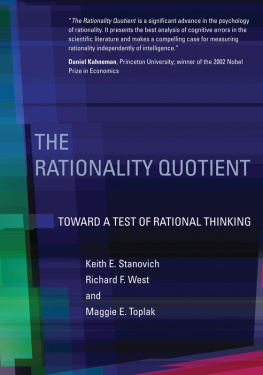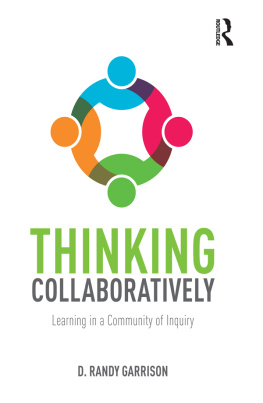Addictive
Thinking
Addictive
Thinking
Understanding
Self-Deception
SECOND EDITION
ABRAHAM J. TWERSKI, M.D.
With A Foreword By John Wallace, Ph.D., CAC

Hazelden
Center City, Minnesota 55012-0176
1-800-328-0094
1-612-257-1331 (24-hour fax)
http://www.hazelden.org (World Wide Web site on the Internet)
1990, 1997 by Hazelden Foundation
All rights reserved
First published 1990 (formerly titled Addictive Thinking: Why Do We Lie to Ourselves? Why Do Others Believe Us? ) Second edition 1997
Printed in the United States of America
No portion of this publication may be reproduced in any manner without the written permission of the publisher
Library of Congress Cataloging-in-Publication Data
Twerski, Abraham J.
Addictive thinking : understanding self-deception / Abraham J. Twerski, with a foreword by John Wallace. 2nd ed.
p. cm.
Previously published in 1990 with the subtitle: Why do we lie to ourselves? Why do others believe us?
Includes bibliographical references and index.
ISBN 1-56838-138-7
1. Thought and thinking. 2. Self-deception. 3. AlcoholicsPsychology. 4. Narcotic addictsPsychology. 5. CodependentsPsychology. I. Title.
RC533.T89 1997
616.86'001'9dc21 971857
CIP
Ebook ISBN: 978-1-59285-806-4
01 00 99 98 97 6 5 4 3 2 1
Book design by Will H. Powers
Cover design by David Spohn
Typesetting by Stanton Publication Services, Inc.
Editors note:
Hazelden offers a variety of information on chemical dependency and related areas. Our publications do not necessarily represent Hazeldens programs, nor do they officially speak for any Twelve Step organization.
All the stories in this book are based on actual experiences. The names and details have been changed to protect the privacy of the people involved. In some cases, composites have been created.
Contents
by John Wallace, Ph.D., CAC
What Is Addictive Thinking?
Self-Deception and Addictive Thinking
The Addictive Thinkers Concept of Time
Confusing Cause and Effect
Origins of Addictive Thinking
Denial, Rationalization, and Projection
Dealing with Conflict
Hypersensitivity
Morbid Expectations
Manipulating Others
Guilt and Shame
Omnipotence and Impotence
Admitting Errors
Anger
The Confining Wall
Managing Feelings
Flavors and Colors of Reality
Must One Reach Bottom?
Addictive Thinkers and Trust
Spirituality and Spiritual Emptiness
Addictive Thinking and Relapse
The Frustrations of Growth
Ridiculous Explanations, Sensible Solutions
Foreword
Few areas of inquiry into human affairs have produced as many experts as the field of chemical dependence. Alcoholism and drug addiction are loaded with international and national experts, each claiming special knowledge of these peculiar diseases that have roused so much controversy while continuing to be so misunderstood by so many. There are experts on wayward chemicals in the brain. Experts who have studied how genes cross the generation gap carrying who knows what cargo of biological risk factors. Experts on family dysfunction. Experts on AA, group therapy, nutrition, behavioral approaches, self-esteem, stress, society and culture, spirituality, relapse, dual diagnoses, and so forth. And while each of these experts undoubtedly holds a piece of the truth about these devastating illnesses, none seems to have as firm a grasp on the whole picture as does Dr. Abraham Twerski.
Dr. Twerski has a marvelous intuitive grasp of the disease of addiction and a knack for portraying real alcoholics in just a few insightful and carefully chosen phrases. Because Dr. Twerski knows these diseases so well, he makes it easy for others to understand them too.
Long before academic psychologists had begun to emerge from the long shadow of a mindless and thoroughgoing behaviorism to reaffirm the importance of such things as reasoning, decision making, concept formation, and so forth, Dr. Twerski was quietly pointing out the critical importance of the cognitive processes of alcoholics and other addicted people and the manner in which these processes enter into their behavior. He has shown that if we are ever to come to grips with the seeming illogic of addicted behavior, we must first come to terms with the various logics of addicted thinking. Those of us who operate as change agents with addicted people and their family members must learn how to spot the resistance to change associated with addictive thinking, how to present our clients with the evidence of their peculiar and self-defeating logic, and how to use this evidence in helping people to achieve abstinence and ongoing stable recovery. This book helps us do so.
This new edition of a classic work is a tour de force in addictive thinking and its ramifications in all aspects of addictive diseases and recovery from them. In this compact and concisely written volume, Dr. Twerski zeros in on the critical aspects of addictive thinking, and, in an admirable economy of words and phrases, explains addictive thinking, shows it to us clearly through carefully selected examples from his clinical practice and general observations, examines its origins, and explores the importance of such thinking in a host of matters including conflict, guilt, shame, anger, managing feelings, defenses, spirituality, and codependency.
In this current age of the information explosion, when we can be readily overwhelmed by more information than we can possibly absorb in several lifetimes, we are often left to grope about in darkness for some usable knowledge. And even if we do manage to find some reliable knowledge in all the chaff we call data, we are still often left grasping for wisdom and analysis. Happily, Dr. Twerski, in this most welcome new edition of Addictive Thinking , manages to give us both. Most readers will come away from reading this book better informed, more knowledgeable about alcoholics and other addicts, and a bit wiser.
J OHN W ALLACE, PH.D., CAC
Addictive
Thinking
What Is Addictive Thinking?
Interviewing Ray, a young man who had been admitted to a rehabilitation unit for drug addiction, I asked, What made you decide it was time to do something about the problem?
Ive been on cocaine for a few years, Ray replied, and occasionally Id quit using for a few weeks at a time, but Id never decided to stop for good before.
For the past year my wife has been pressuring me to stop completely. She used to do cocaine too, but shes been off for several years now. I finally got to the point where doing coke wasnt worth the hassle, so I decided to give it up completely.
I sincerely wanted to stop for good, but after two weeks I started up again, and that proved something to me. Im not stupid. I now know that it is absolutely impossible for me to stop on my own, maybe.
I repeated Rays last sentence several times because I wanted him to hear what he had just said. But he could not see what I was trying to point out.
I said, It is perfectly logical to say, Maybe I can stop by myself. It is also perfectly logical to say, It is absolutely impossible for me to stop by myself. But to say, I now know that it is absolutely impossible for me to stop on my own, maybe, is absurd because it is self-contradictory. It is either absolutely impossible or maybe, but it cannot be both. Ray, however, was unable to see my point.
I have repeated this conversation to a number of people, and even seasoned therapists initially show no reaction, wait-ing for the punch line. Only after I point out the contradiction between absolutely impossible and maybe do they see the absurdity of the statement and the distortion of thought taking place in this mans mind.

